Through September, Chloe Lieberman will be answering readers’ gardening questions. You can email all inquiries to gardening@mountainx.com.


Through September, Chloe Lieberman will be answering readers’ gardening questions. You can email all inquiries to gardening@mountainx.com.

The scenic roadway saw 15.9 million recreation visits in 2021, up from about 14 million in 2020; the Great Smoky Mountains National Park, which also includes land in Western North Carolina, was in second place with over 14.1 million visits.

At many grocery stores in the area, consumers can find at least some local produce, meat or dairy products. Plenty of restaurants tout local ingredients on their menus and farmers markets are ubiquitous here. But it wasn’t always that way. “It’s hard to remember what it was like 20 years ago, but there was not […]

With the notable exception of the IDA-certified dark sky park at the PARI in Transylvania County — one of only two such facilities in the state — no sky in Western North Carolina is untouched by light pollution. Central Asheville can reach as high as a 6 on the Bortle Scale, in which 1 is complete darkness and 9 is the Las Vegas Strip.
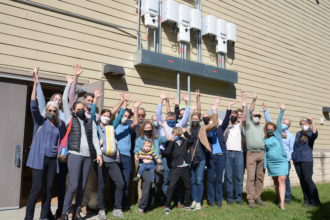
Six years in the making, a 300 kilowatt-hour solar array at Asheville’s Isaac Dickson Elementary School was officially dedicated Sept. 24. The $428,000 project is expected to save the school over $1.3 million in utilities costs over its 30-year operational lifespan.
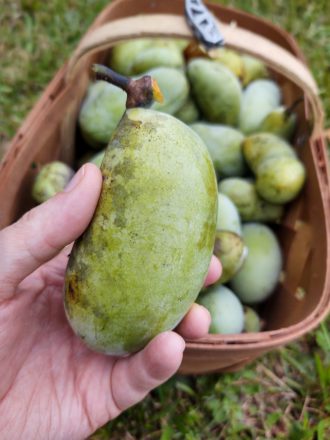
The large, yellowish-green fruit, although native to the Eastern United States, is hard to come across due to its short shelf life and very limited cultivation. Nevertheless, some Asheville-area makers are crafting pawpaw products to give more people a taste of this indigenous American delight.
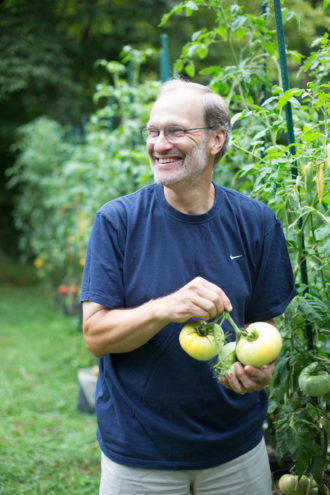
Craig LeHoullier is consumed by tomatoes. He has written two books about growing them: Epic Tomatoes and Growing Vegetables in Straw Bales: Easy Planting, Less Weeding, Early Harvests. He lectures about tomatoes at gardening conferences. He has been the Seed Savers Exchange tomato adviser for 30 years. He and his wife, Sue Angus-LeHoullier, founded Tomatopalooza, a tasting event […]

On Aug. 12, a subsidiary of nonprofit Conserving Carolina completed the $7.8 million purchase of the currently unused Ecusta rail line, stretching 19 miles between Hendersonville and Brevard, from the Blue Ridge Southern Railroad.

The Eastern Band of Cherokee Indians Tribal Council passed an ordinance on Aug. 5 allowing production and use of the crop, which the body had previously voted to decriminalize on May 6.
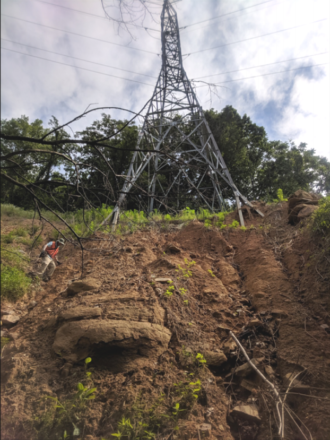
According to the N.C. Climate Science Report prepared by N.C. State University’s Asheville-based N.C. Institute for Climate Studies and other experts, the area will likely experience more landslides in the coming years due to climate change.

Since he was a teenager in Charlotte, Mac Franklin knew what his life’s work would be. He began landscaping during high school and continued the career while studying art, industrial art and design at Appalachian State University. After college, Franklin moved west to work for a landscape architect in San Francisco and a nursery in […]
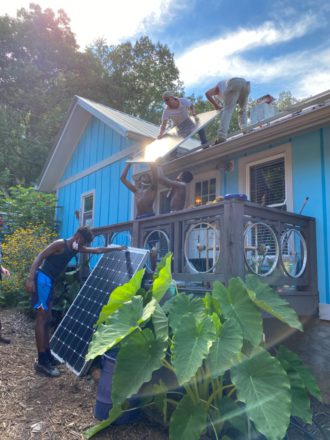
The Solarize rate of $2.45 per watt of electricity generation is roughly 9% cheaper than the statewide average of $2.67 per watt listed by EnergySage, an industry website. The program, spearheaded by the nonprofit Blue Horizons Project, is able to offer the discount through bulk purchasing of solar equipment for Buncombe County residents.
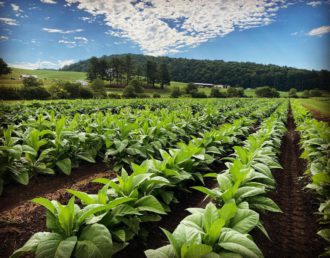
The Asheville-based Appalachian Sustainable Agriculture project has found that the number of Western North Carolina tobacco farms declined by 97% between 1997 and 2012, largely due to the federal tobacco buyout. But Matthew Vann, extension specialist and assistant professor at N.C. State University, believes a different variety could make the crop more economically viable for local growers.
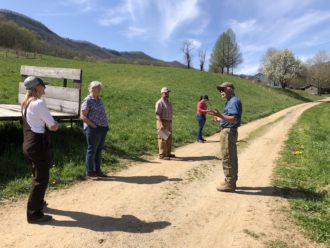
“What is emerging is the idea that we’re now able to quantify what’s happening,” says Jennifer Harrison, agriculture and land resource director for Buncombe County, about the ability of farmers to combat climate change through practices like cover cropping and rotational grazing.

Smith Mill Works is a sprawling, formerly abandoned greenhouse complex in West Asheville. The property’s revitalization began with in 2014 with the involvement of Michael Klatt. Now home to a diverse array of resilient businesses, the facility provides insight and inspiration toward a sustainable future for Asheville and the region.
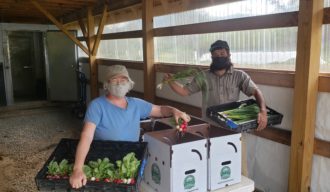
As the world returns some sense of normalcy, the desire for the reliability and convenience of a CSA is holding fairly steady, and Western North Carolina growers have refined systems and made adjustments accordingly.

“[Ginseng] has tremendous benefits to the human body,” says Eidus.

“There’s a desire to grow food that is deeply nourishing and has all the minerals and love in it that humans need to survive,” says Maayan Chelsea of Soul Gardens. “We find that just taking it back into our own hands is the best way to achieve food sovereignty.”
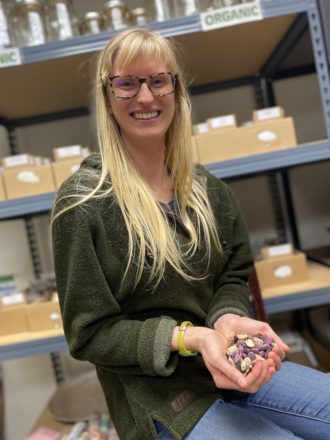
Last spring’s supply problems have persisted this growing season — and have extended to commercial farming operations — as seed companies grapple with coronavirus-induced labor issues and consistently high demand.

The charging station program, funded by the N.C. Department of Environmental Quality from part of the state’s allocation in the Volkswagen emissions-cheating scandal, partially defrays the cost of installing Level 2 infrastructure, which can recharge electric vehicles up to seven times as quickly as a standard 120-volt outlet.

Increasing heat and stronger storms threaten trout populations dependent on clean, cold, oxygen-rich water. A decline in trout production could hurt farmers and recreational fishermen.